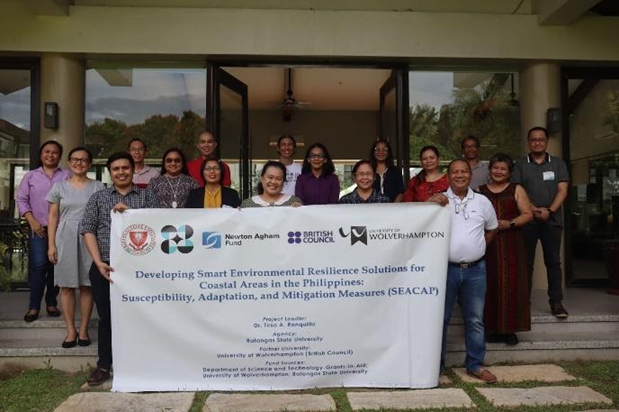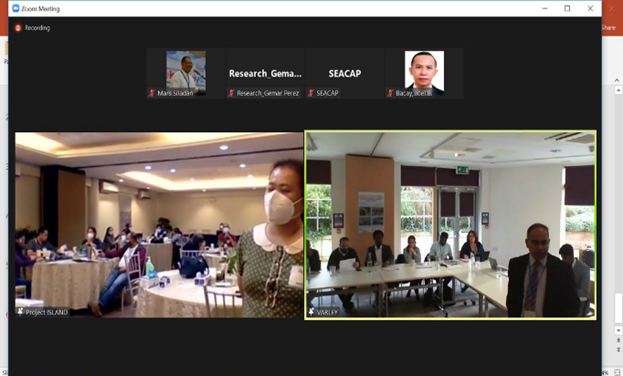
From the series of typhoons and disasters that struck the country, there is no doubt that the Philippines is vulnerable to natural calamities.
To prevent total disappearance of our coastal forests (mangrove and beach forests), the Batangas State University (BatSU) in cooperation with the Wolverhampton University in the United Kingdom (UK), proposed a five-day intensive research workshop to develop innovative strategies and technologies towards environmental resilience of the Philippines’ coastal communities.
With funding from Department of Science and Technology (DOST), British Council, Wolverhampton University, and BatSU, the agencies implemented the project, “Developing Smart Environmental Resilience Solutions for Coastal Areas in the Philippines: Susceptibility, Adaptation and Mitigation Measures (SEACAP).” The project is being monitored by the Philippine Council for Agriculture, Aquatic and Natural Resources Research and Development of the Department of Science and Technology (DOST-PCAARRD).
The workshop is part of the project’s outputs to integrate data science, mapping technologies and decision support tools to identify disaster risk and plan to protect the coastal community from potential hazards.
According to Dr. Tirso A. Ronquillo, program leader, there is a need to strengthen the efforts to promote environmental resilience in the coastal communities of the Philippines. Its geographical characteristics and vulnerability of human and natural resources to disasters throughout the year pose a threat to its growth and development.
A total of 19 participants/stakeholders from the Philippines met face-to-face during the workshop at Lima Park Hotel, Malvar, Batangas and the UK team, composed of 13 researchers, similarly held their own face-to-face workshop at the University of Brighton, Brighton, United Kingdom.

Participants from the Philippines include representatives from BatSU, UPLB - School of Environmental Science and Management (SESAM), Department of Environment and Natural Resources (DENR)-Ecosystems Research and Development Bureau (ERDB), Provincial Government Environment and Natural Resources Office (PG-ENRO - Batangas), and DOST-PCAARRD.
DOST Secretary Fortunato T. Dela Peña and Mr. Danie Son Gonzalvo, the Newton Agham Fund Program Manager, also showed their support in this event.
The workshop served as a platform for both experts from the UK and the Philippines to better interpret and adapt environmental resilience in coastal communities as well as understand the culture, practices, needs, and limitations in developing coastal resilience.
As an output, gaps and issues in coastal resiliency were identified. Based on this, research framework and roadmap for the adoption and implementation of climate-smart technologies for the resilience of coastal communities were crafted.
This will help strengthen the capacity of local participants in realizing the relevance of emerging technologies in environmental resilience. It will also provide a good opportunity to develop multidisciplinary approaches for effective environmental resilience management of coastal communities (Eirene Grace Arcayos, John Benrich Zuniga, DOST-PCAARRD S&T Media Services).
